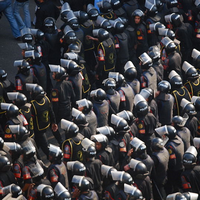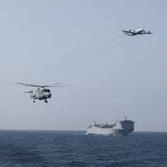
Unlike the successful uprisings in neighboring Tunisia and Egypt, characterized by largely unarmed protests and government crackdowns with tear gas and bullets, Libya is now in the midst of a full-bore violent civil war. Refusing to stand down, Col. Moammar Gadhafi has vowed “to fight until the last man and last woman to defend Libya from east to west, north to south.” While rebel forces have taken control of many town and cities, forces loyal to Gadhafi firmly control Tripoli, the country’s capital, and have started to contest the rebels’ control of strategic town and cities over the past week. […]




